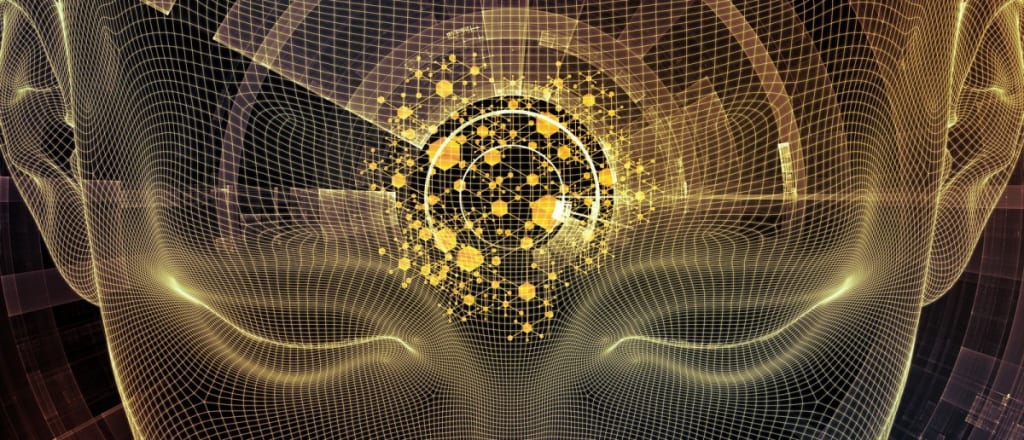The Mind, Identity, and What It All Means
Our Minds

The human mind, a puzzling and daunting thing often dazzled in its own complexity. Often losing a sense of "self" in a world placing a great deal of pressure on the necessity of identity and function in our systematic society. Our thought processes seem to rotate cyclically through religious beliefs or other belief systems, to complete segregation from the rest of the world, leaving feelings of isolation and loneliness to often arise. Of course in the midst of all these things, we have seen and some possibly experienced a vast array of mental illnesses, so I think the fundamental question we must ask ourselves is not only why, but how are these "faults" in our mind so common in today's times?
Before we can explore why we individually experience these things, we must first talk about our identities. When you are born we all know that in terms of a personality, we are pretty much in the lacking. Now let's say we have an enemy at the age we are now. Well, when that enemy was a baby, in other words lacking in "a personality," the concept of an enemy would be rather ridiculous as the conflict within our minds would be all but absent. Now I know this seems silly as who could be enemies as a baby? Crazy, right? But this concept applies to a much broader topic: conceptual identity. To reiterate, our conceptual identity is essentially the identity we have all grown, developed, and become almost entirely associated with. This identity we all nourish of which some pride themselves on it, whilst others loathe in how everything in life didn't work out how they wanted it to, or just not enjoying or wanting to continue living... this is called depression. Similarly, when one cannot stop thinking and is stuck in endless thought loops, ranging from paranoia to general anxiety, we call this either psychosis or schizophrenia. Our perception of everything determines everything, however the issue lies in the fact that our conceptual identities are, well, conceptual. When you think on the question "Who am I," one often bundles together a collection or memories, beliefs, ideologies, and relationships to define who we are, and those things of course have a purpose and place in our lives, but often, if someone is stripped of something they have identified with for so long, part of their sense of self is also diminished.
To show this, simply imagine a man who has built a life with a woman with whom he is madly in love with, and after four years of a strong relationship, she sadly passes away. The man falls into despair and the grief crippling him to the point of depression and suicidal thoughts. The grief he experiences is perfectly natural and not a pleasant feeling; however, underlying this, our attachment to both our own conceptual identity (ego) and other peoples' ego that we hold close means that when something in our life dies, the negativity that arises from that can be seemingly inescapable. Essentially what we are as humans is consciousness, the underlying connector which all living things have. It cannot go through mortal death as if I died tomorrow. Everyone is still conscious. My personality and ego may have died; however, what I truly am remains. In this way, ego continues to associate and identify with objects, people, and emotions it feels in order to attempt to gain a greater sense of self. If somebody asked you what your goals were, so let's say "I want to be the best football player in the world," this concept works with the underlying assumption that once you become the best player on the planet, you will be fundamentally better and will pride yourself in being better than others. This is not only unhealthy for the individual, but for others, as people often get spoken down to in the presence of the great "Steve blah blah," and henceforth their sense of self is beaten down. A repetition of these kinds of actions can cause low self-esteem all the way to suicide when one feels not worthy.
Every single thing touched upon so far in terms of conflict, suffering, and identity all share a common denominator: thought. If I wake up dreading work and spend all day complaining about the next thing, I spend my entire day thinking about how bad everything is and will go home to my family or friends passing on my stories of how bad everything was. However, what if I woke up and simply dealt with things as they came, without passing consistent judgement all the time on what is going on whilst lost in the past and future, then how could my day be as bad as I originally said it was in the first scenario? It just couldn't. Now that is not to say that negative events and emotions can't arise throughout the day as that is just not realistic, who said life was a blissful breeze meant to be completely pleasurable and positive, if anyone, you probably said that to yourself at some point in your life as an ideal. You see though, everything you believe stems from a thought which you have clung to, or in other words identified with. Instead you should appreciate these things and see that all physical things are impermanent, your body, the technology, the clothing, so surely it would make sense to identify yourself with the one thing permanent, consciousness, so as to alleviate suffering due to loss in your life. For you cannot lose what you don't think belongs to you.






Comments
There are no comments for this story
Be the first to respond and start the conversation.